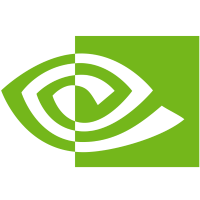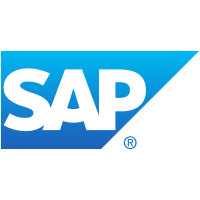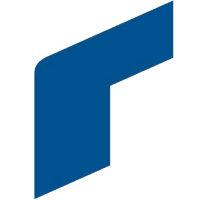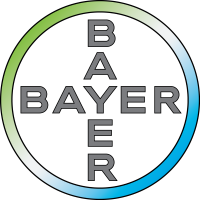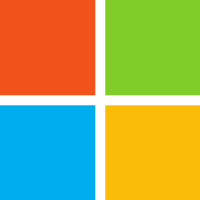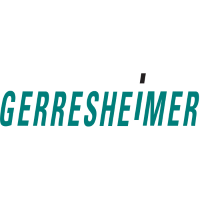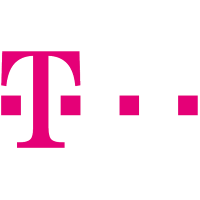21.06.2010
biz.yahoo.com/e/100621/wlsi.ob10-q.html
21-Jun-2010
Quarterly Report
ITEM 2. Management's Discussion and Analysis of Financial Condition and Results of Operations
Special Note on Forward-Looking Statements
Certain statements in Management's Discussion and Analysis ("MD&A"), other than purely historical information, including estimates, projections, statements relating to our business plans, objectives and expected operating results, and the assumptions upon which those statements are based, are "forward-looking statements". These forward-looking statements generally are identified by the words "believe," "will," "would," "will be," "will continue," "will likely result," and similar expressions. Forward-looking statements are based on current expectations and assumptions that are subject to risks and uncertainties which may cause actual results to differ materially from the forward-looking statements. These statements are subject to a number of risks, uncertainties and developments beyond our control or foresight including changes in the trends of the mobile computing industry, formation of competitors, changes in governmental regulation or taxation, changes in our personnel and other such factors. We undertake no obligation to update or revise publicly any forward-looking statements, whether as a result of new information, future events, or otherwise. Readers should carefully review the risk factors and related notes included in the Company's Form 10-K and other SEC filings.
Overview
The following MD&A is intended to help the reader understand the results of operations, financial condition, and cash flows of Wellstar International, Inc. MD&A is provided as a supplement to, and should be read in conjunction with, our financial statements and the accompanying notes to the financial statements ("Notes").
Background
Wellstar International Inc. ("Wellstar"), through its wholly owned subsidiary, Trillennium Medical Imaging, Inc. ("Trillennium," "TMI" or "the Company"), has developed an innovative thermal imaging system designed for the evaluation and early detection of heat patterns within the body that indicate the presence of physiological changes such as pressure ulcers, referred pain and metabolic changes within the breast. The Company's infrared imaging involves the detection and recording of skin temperature and injury patterns, providing visual and quantitative documentation to accurately capture body temperature data. The Company's system map changes in skin blood flow by translating temperature data into pictures. The interpretation of these temperatures and thermal patterns can play an important role in the development of a diagnosis. The Company's system consists of proprietary imagers ("TMI 7800 Imager"), operating software ("Image MHS 5.0 Software") and a comprehensive data transmission and collection network, for which TMI has patents pending. The Company seeks to be the first-to-market in deep tissue injury and pressure ulcer detection using its proprietary infrared imaging system. Thermal Imaging is a low cost, noncontact, non-radioactive diagnostic screening procedure designed for clinical evaluation. In addition, thermal imaging provides an ability to track the progress of therapies being utilized in a low cost, non-invasive manner. Thermal Imaging can detect signs of pressure ulcers before they are visible with the naked eye through detection of temperature changes at the site which allows for treatment of the pressure ulcer before it erupts. The TMI system can be used to scan all new patients into hospitals and long-term care facilities prior admittance and begin treating existing wounds before they are visible. The TMI technology and software is approved by the FDA as an Adjunctive Diagnostic screening procedure for early breast cancer detection, differential diagnosis of pain dysfunctions, (such as Reflex Sympathetic Dystrophy, Neuromuscular Skeletal Syndromes and Neurological disorders), the early detection of pressure ulcers, deep tissue injuries, and bed sores, as well as orthopedic applications. The Company's imaging research concurrently looks to initiate consideration of thermography as a viable tool and a medical standard for predicting and preventing pressure ulcers in the medical community.
TMI is currently seeking financing to complete the necessary changes to the TMI System and to bring the TMI System to market. The company will initially focus is efforts on Hospitals and long term care facilities.
TMI currently has had their study completed at Duke University and the results have been submitted for publication. TMI has also started a Beta Test at a nursing home. The purpose of the Beta Test is to show the ease of use of the TMI system within the work environment. TMI has expanded their Beta Test to have an installation in a Long Term Acute Care Center.
--------------------------------------------------
Plan of Operation and Financing Needs
We presently do not have any available credit, bank financing or other external sources of liquidity. Due to our brief history and historical operating losses, our operations have not been a source of liquidity. We will need to obtain additional capital in order to expand operations and become profitable. In order to obtain capital, we may need to sell additional shares of our common stock or borrow funds from private lenders. There can be no assurance that we will be successful in obtaining additional funding.
We will still need additional capital in order to continue operations until we are able to achieve positive operating cash flow. Additional capital is being sought, but we cannot guarantee that we will be able to obtain such investments. This money would be used for the roll out of our TMI System to the long term care market.
Financing transactions may include the issuance of equity or debt securities, obtaining credit facilities, or other financing mechanisms. However, the trading price of our common stock and a downturn in the North American stock and debt markets could make it more difficult to obtain financing through the issuance of equity or debt securities. Even if we are able to raise the funds required, it is possible that we could incur unexpected costs and expenses, fail to collect significant amounts owed to us, or experience unexpected cash requirements that would force us to seek alternative financing. Furthermore, if we issue additional equity or debt securities, stockholders may experience additional dilution or the new equity securities may have rights, preferences or privileges senior to those of existing holders of our common stock. If additional financing is not available or is not available on acceptable terms, we will have to curtail our operations.
Results of Operations
Quarter Ended April 30, 2010 compared to Quarter Ended April 30, 2009 (all references are to the Quarter Ended April 30)
Revenue: We did not have revenue during the quarters ended April 30, 2010 and April 30, 2009.
Cost of Sales and Gross Profit: There was no Cost of Sales for the quarters ended April 30, 2010 and April 30, 2009 as we did not generate revenue during these periods.
Operating, Selling, General and Administrative Expenses: Operating, selling, general and administrative expenses decreased by $97,640, or 18% in the 2010 third fiscal quarter to $446,130 from $543,770 in 2009. This decrease reflects a decrease in stockholder relations expenses by $45,975. In addition, salaries decreased by $98,200 from $225,000 to $126,800.
Loss from Operations: Loss from operations for the quarter ended April 30, 2010 was $446,130, a decrease of $97,640 or 18% from the loss from operations in the same period in 2009 of $543,770 as a result of the aforementioned decreases in operating, sales and administrative expenses.
Other Income and Expense: Total other expenses of $17,022,080 in the quarter ended April 30, 2010 represent an increase in other expenses of $17,121,319 from the income of $99,239 in 2009 as a result of a greater expense from derivative instrument expense for the period related to a increase in derivative instrument liabilities caused by a change in our stock prices.
--------------------------------------------------
Net Loss: Net loss of $17,468,210 for the quarter ended April 30, 2010 was $17,023,679 greater than the net loss of $444,531 for the same period in 2009 due to the greater amount of derivative instrument expense.
Liquidity and Capital Resources
It is Management's opinion that the current financial position of the company is in dire straits and the Company will need to obtain additional funding to continue operations. The Company expects that it will be able to continue operating through July 2010. If the Company does not obtain financing at this time, it will be required to cease operations.
As of April 30, 2010, we had a working capital deficit of approximately $29,521,416, and cash of $176,044. We do not have the funds necessary to maintain our operations for the coming fiscal year, and will need to raise additional funding.
The liquidity impact of our outstanding debt is as follows:
Our secured convertible note with Andrew W. Thompson (the "Thompson Note"), in the principal amount of $400,000, matured on April 11, 2006 and remains outstanding. We are in default pursuant to the terms of the Thompson Note, although we have not received a notice of default from Mr. Thompson, nor has Mr. Thompson indicated to the Company that he intends to place the Company in default under the loan agreement. Interest on the Thompson Note is at the rate of 8% plus the prevailing margin rate charged to the lender, which is currently 7.625%. In addition to the outstanding principal, we also owe accrued interest in the amount of $267,290. The lender has the option of converting the loan into fully registered common stock at a discount of 40% on the day of conversion, which is the prepayment date or the due date, whichever occurs first. Additionally, the lender also received warrants to purchase 1,000,000 shares of the company's fully registered common stock at an exercise price of $0.50 per share. If the lender converts, the Company will issue the appropriate number of shares and will not be required to use cash to liquidate the debt. Additionally, the Company will receive the cash proceeds in the amount of $500,000 if the lender exercises the $0.50 warrants. On November 10, 2006, the Thompson Note was amended to include a provision stipulating that the holder may not convert the secured convertible note if such conversion or exercise would cause him to own more than 9.99% of our outstanding common stock. However, this restriction does not prevent the holder from converting a portion of the note and then converting the rest of the note. In this way, the holder could sell more than this limit while never holding more than this limit.
Our unsecured demand note with Michael Sweeney (the "Sweeney Note"), in the principal amount of $150,000, matured on August 1, 2006 and remains outstanding. In addition to the outstanding principal, we also owe accrued interest in the amount of $43,325. We are in default pursuant to the terms of the Sweeney Note and we have not received a notice of default from Mr. Sweeney, nor has Mr. Sweeney indicated to the Company that he intends to place the Company in default under the note.
Our unsecured demand note with Micro Health Systems (the "MHS Note"), dated December 21, 2005 in the principal amount of $200,000, with interest at 8% per annum, has two maturity dates: at the 180th day and the 365th day following issuance. A payment of $100,000.00 is due at each maturity date. We did not make the first or second payment. There is an acceleration provision in the MHS Note stipulating that the entire $200,000.00 was due upon non-payment of the first $100,000. The interest rate then goes to the highest rate allowed by Florida law. We received a notice of default from MHS on November 28, 2006 but no further action has been taken. The MHS Note is secured by a pledge of 1.5 million shares of the Company's treasury stock.
--------------------------------------------------
To obtain funding for our ongoing operations, we entered into a Securities Purchase Agreement with four accredited investors - AJW Partners, LLC, AJW Qualified Partners, LLC, AJW Offshore, Ltd. and New Millennium Partners II, LLC on October 31, 2005 for the sale of (i) $3,000,000 in secured convertible notes and (ii) warrants to buy 5,000,000 shares of our common stock. The gross financing proceeds were paid to the Company in three separate tranches of $1,000,000 each. The first tranche of the financing, in the amount of $1,000,000, was received by the Company upon closing. The second tranche was received on January 20, 2006. The third tranche of $50,000 was received in August 2006. The secured convertible notes issued pursuant to our October 2005 through June 2008 Securities Purchase Agreements bear interest originally at 8% but increasing to 13% effective September 8, 2009, mature three years from the date of issuance, and are convertible into our common stock, at the selling stockholders' option, at the lower of (i) $0.12 or (ii) generally a 75% discount to the average of the three lowest intraday trading prices for the common stock on a principal market for the 20 trading days before but not including the conversion date. As of May 20, 2010, the average of the three lowest intraday trading prices for our common stock during the preceding 20 trading days as reported on the Over-The-Counter Bulletin Board was $ .0006 and, therefore, the conversion price for the secured convertible notes was $ .00015. Based on this conversion price, the $4,841,799 outstanding principal amount of the secured convertible notes, excluding interest, were convertible into approximately 32,278,660,000 shares of our common stock. The stock purchase warrants have an exercise price of $0.0001 and $0.50 per share. If the lender converts, the Company will issue the appropriate number of shares and will not be required to use cash to liquidate the debt. Additionally, the Company will receive cash proceeds in the amount of $3,055,000 if the lender exercises the warrants. If the lender converts, the Company will issue the appropriate number of shares and will not be required to use the cash to liquidate the debt.
To obtain additional funding for our ongoing operations, we entered into a loan agreement with JMJ Financial a loan in the principal sum of $ 575,000, of which $ 75,000 is a loan acquisition cost. The note provides for a one time 12% interest charge on the principal sum. The convertible note is convertible into our common stock, at the selling stockholders' option, at 70% of the average of the three lowest intraday trading prices for the common stock on a principal market for the 20 trading days before but not including the conversion date. As of July 31, 2009 the principal balance of the loan is $ 750,000.
On May 15, 2009, the
Company entered into a Securities Purchase Agreement with AJW Partners, LLC ("Partners"), AJW Partners II, LLC ("Partners II "), AJW Master Fund, Ltd. ("Master"), AJW Master Fund II, Ltd. ("Master II") and New Millennium Capital Partners, II, LLC ("Millennium" and collectively with Partners, Partners II, Master and Maser II, the "Purchasers") for the sale of 13% secured convertible notes in an aggregate principal amount of up to $79,500 (the "Notes"). The Purchasers closed on $22,000 in Notes on May 18, 2009.
The Notes bear interest at the rate of 13% per annum. Interest is payable monthly, unless the Company's common stock is greater than $0.045 per share for each trading day of a month, in which event no interest is payable during such month. Any interest not paid when due shall bear interest of 15% per annum from the date due until the same is paid. The Notes mature three years from the date of issuance, and are convertible into common stock, at the Purchasers' option, at the lesser of (i) $0.12 or (ii) a 75% discount to the average of the three lowest trading prices of the common stock during the 20 trading day period prior to conversion. The Notes contain a call option whereby, if the Company's stock price is below $0.045, the Company may prepay the outstanding principal amount of the Notes, subject to the conditions set forth in the call option. The Notes also contain a partial call option whereby, if the Company's stock price is below $0.045, the Company may prepay a portion of the outstanding principal amount of the Note, subject to the conditions set forth in the partial call option.
--------------------------------------------------
The full principal amount of Notes are due upon a default under the terms of the secured convertible notes. In addition, the Company granted the Purchasers a security interest in substantially all of the Company's assets and intellectual property. The Company is required to file a registration statement with the Securities and Exchange Commission upon demand, which will include the common stock underlying the Notes.
The conversion price of the Notes may be adjusted in certain circumstances such as if the Company pays a stock dividend, subdivides or combines outstanding shares of common stock into a greater or lesser number of shares, or takes such other action as would otherwise result in dilution of the selling stockholder's position.
The Purchasers have agreed to restrict their ability to convert their Notes and receive shares of common stock such that the number of shares of common stock held by them in the aggregate and their affiliates after such conversion or exercise does not exceed 4.99% of the then issued and outstanding shares of common stock.
JMJ Financing
On May 22, 2009, the Company issued a Convertible Promissory Note to JMJ Financial ("JMJ") in aggregate principal amounts of $575,000 (the "Initial JMJ Note"). In consideration for Wellstar's issuing of the Initial JMJ Note, JMJ issued Wellstar a Secured and Collateralized Promissory Note in the principle amount of $500,000 (the "Initial Wellstar Note").
In addition, on August 19, 2009 Wellstar issued a Convertible Promissory Note to JMJ in aggregate principal amounts of $1,150,000 (the "Second JMJ Note" and together with the Initial JMJ Note, the "JMJ Notes"). In consideration for Wellstar's issuing of the Second JMJ Note, JMJ issued Wellstar a Secured and Collateralized Promissory Note in the principle amouns of $1,000,000 (the "Second Wellstar Note" and together with the Initial Wellstar Note, the "Wellstar Notes").
The JMJ Notes bear interest at 12%, mature three years from the date of issuance, and are convertible into our common stock, at JMJ's option, at a conversion price, equal to 70% of the lowest trade for our common stock during the 20 trading days prior to the conversion. Prior to the conversion of the JMJ Notes, JMJ must make a payment to Wellstar reducing the amount owed to Wellstar under the Wellstar Notes. As of May 20, 2010, the lowest trade for our common stock during the 20 trading days as reported on the Over-The-Counter Bulletin Board was $.0006 and, therefore, the conversion price for the JMJ Notes was $.00047. Based on this conversion price, the JMJ Notes in the aggregate amount of $1,3321,789, excluding interest, are convertible into 2,833,593,617 shares of our common stock.
--------------------------------------------------
JMJ has agreed to restrict their ability to convert the JMJ Notes and receive shares of common stock such that the number of shares of common stock held by them in the aggregate and their affiliates after such conversion or exercise does not exceed 4.99% of the then issued and outstanding shares of common stock.
The Wellstar Notes bear interest at the rate of 13.8% per annum and mature three years from the date of issuance. No interest or principal payments are required until the maturity date, but both principal and interest may be prepaid prior to Maturity Date. The Wellstar Notes are secured by units of STIC AIM Liquidity Portfolio Select Investment Select Investment Fund (the "JMJ Collateral"). On each of the Wellstar Notes, JMJ has agreed to pay down the principal of the Wellstar Notes commencing 210 days after the original issuance of the Wellstar Notes, however, JMJ may adjust the payment schedule within its sole discretion. In the event that JMJ defaults on the Wellstar Notes, Wellstar may take possession of the JMJ Collateral.
We presently do not have any additional available credit, bank financing or other external sources of liquidity. Due to our brief operating history as a start up company, our operations have not been a source of liquidity. We will need to obtain additional capital in order to maintain and expand our operations. We are currently investigating other financial alternatives, including additional equity and/or debt financing. In order to obtain capital, we may need to sell additional shares of our common stock or borrow funds from private lenders. However, there can be no assurance that that any additional financing will become available to us, and if available, on terms acceptable to us.

